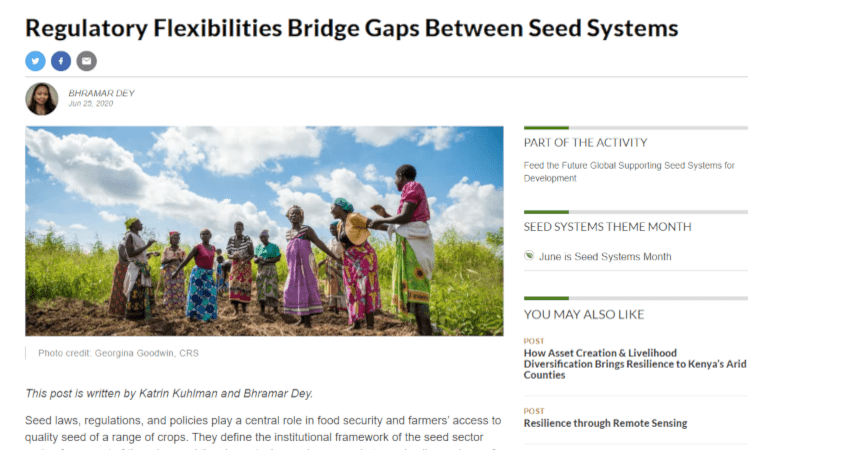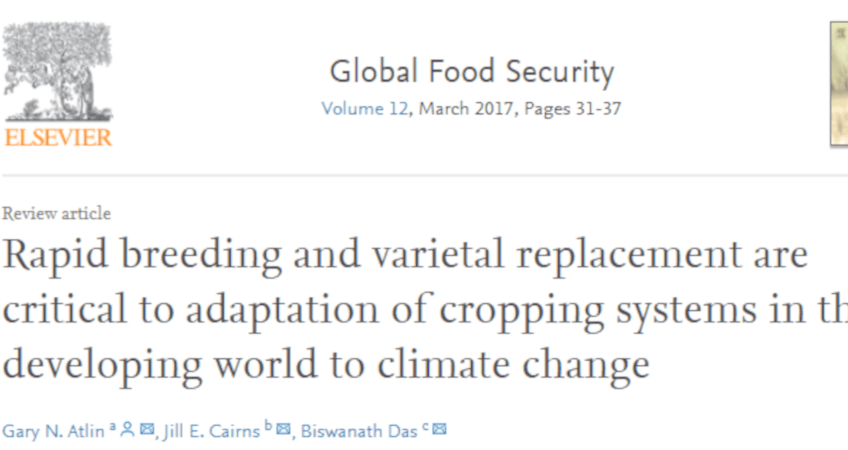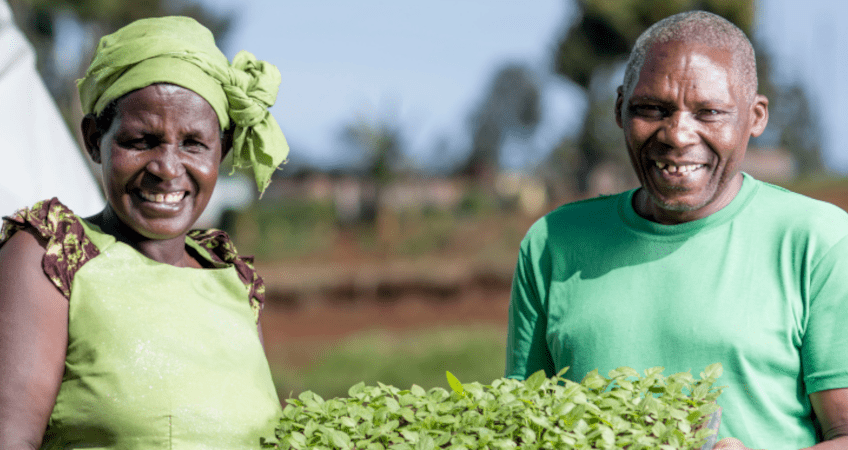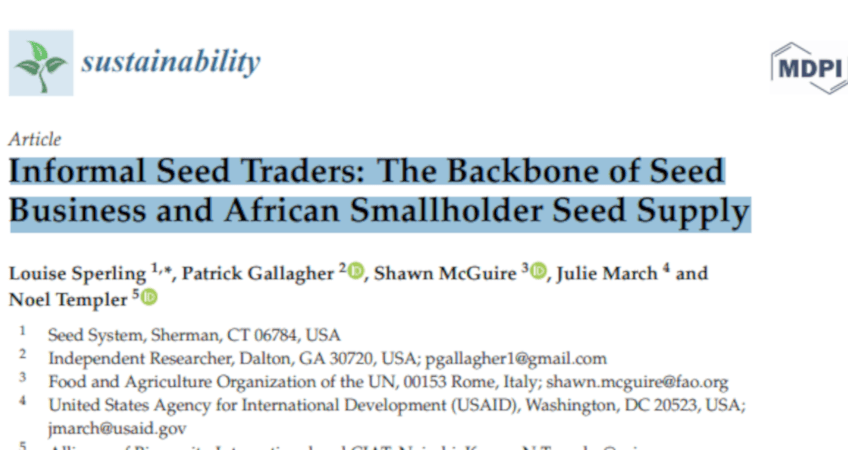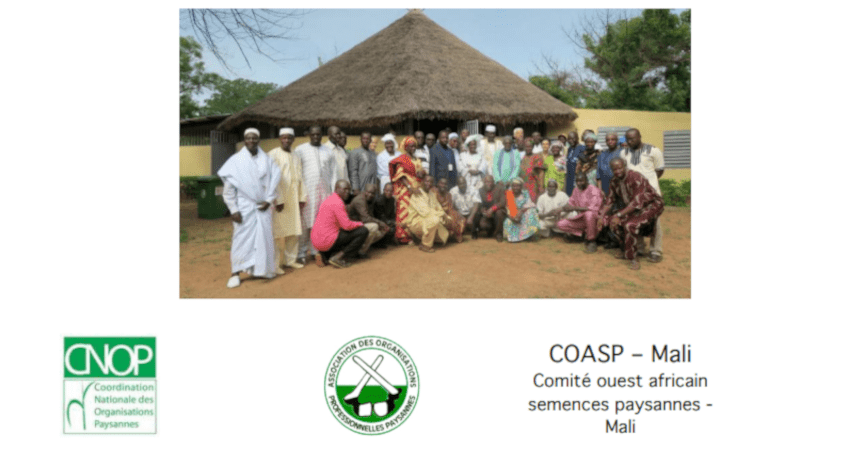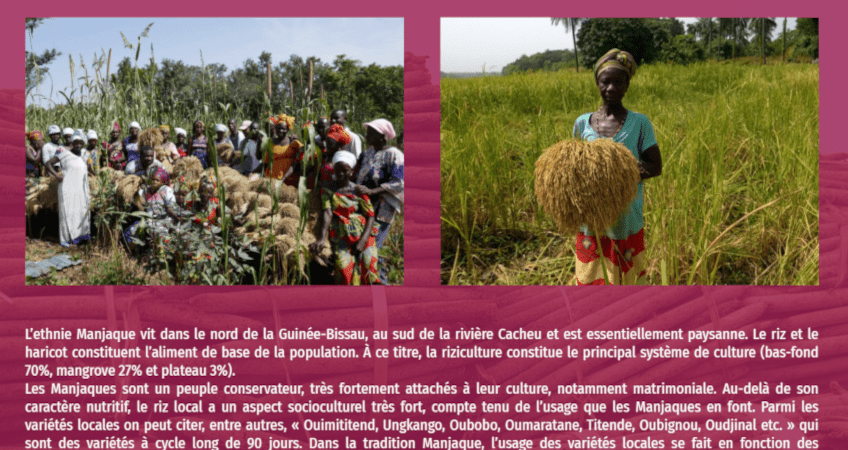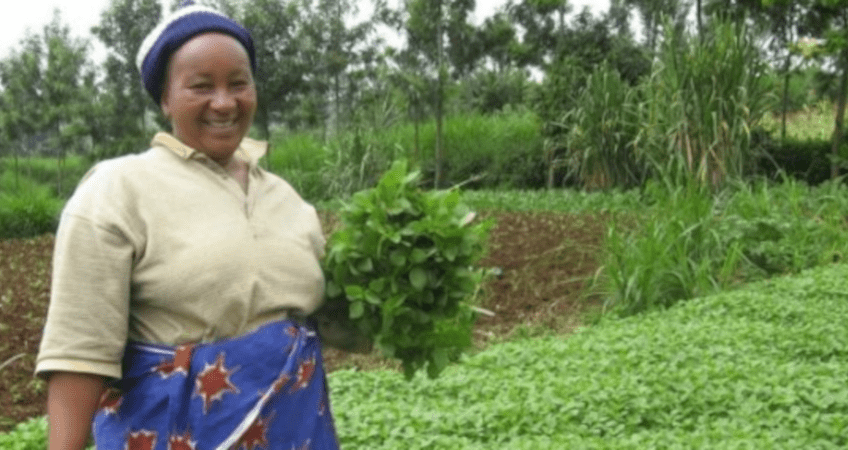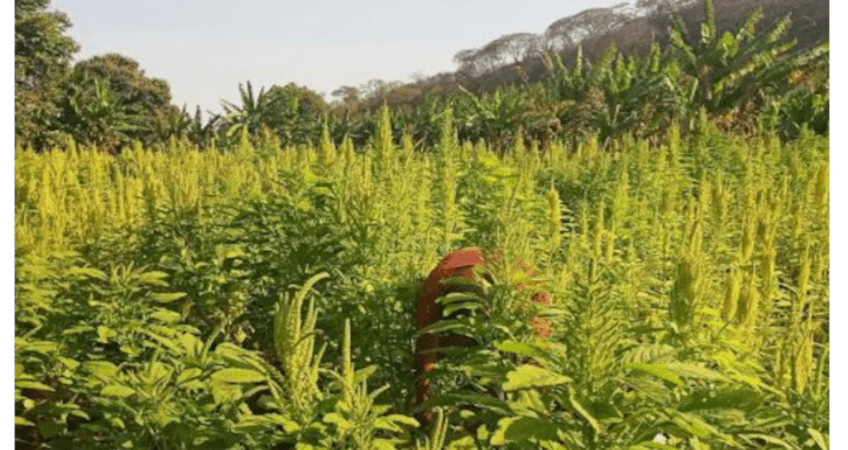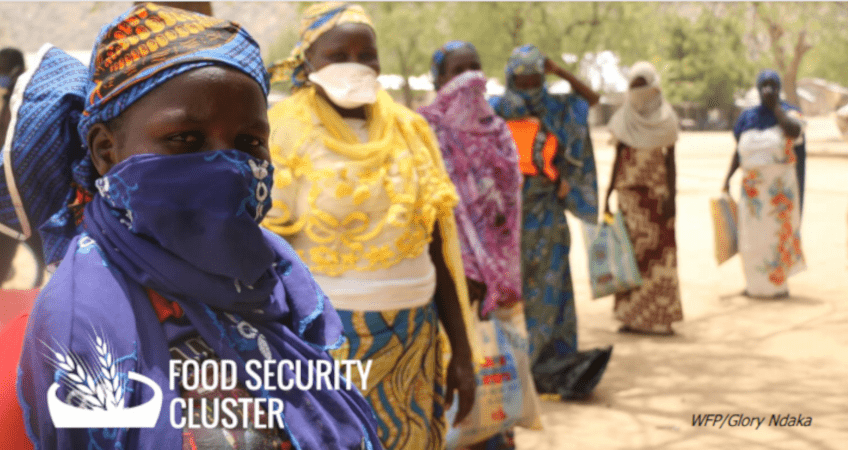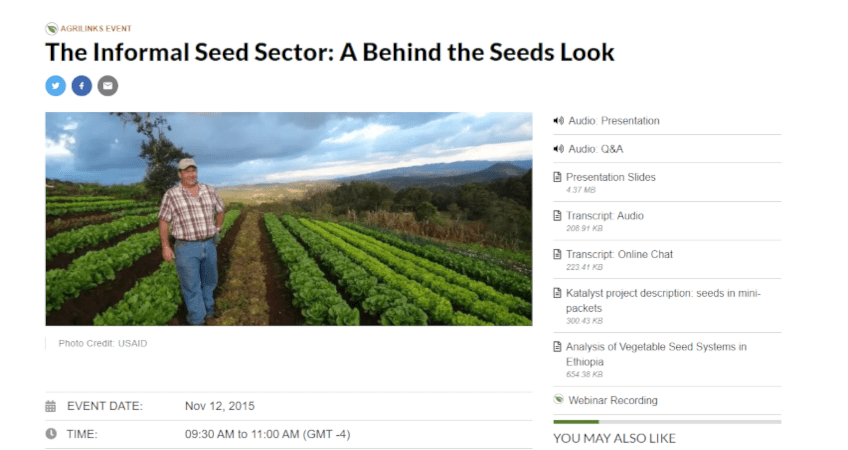
Week 35 – Webinar: The Informal Seed Sector: A Behind the Seeds Look
Author: Agrilinks, 2015
Topics: Informal seed sector, access to seeds, quality seeds
Many smallholder farmers rely on local seed varieties to produce staple food crops. Distributed through informal systems, farmers select varieties based on a number of factors including environmental considerations, socioeconomic factors, access and taste preferences. These systems may contribute to the food security of a region, but farmers may also encounter barriers to accessing good quality seed including quality controls and storage issues.
